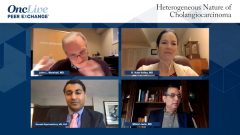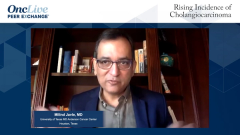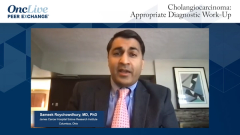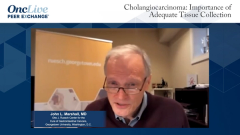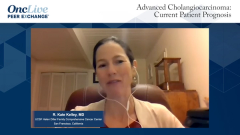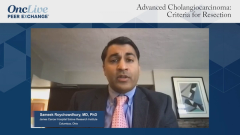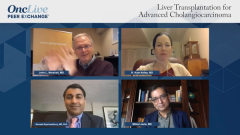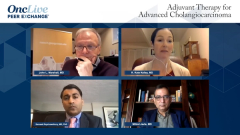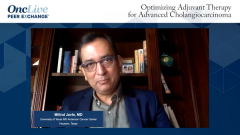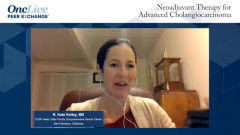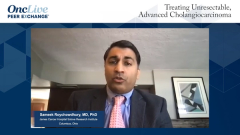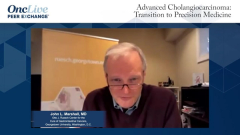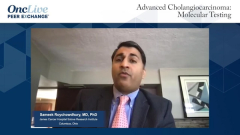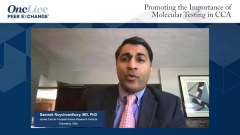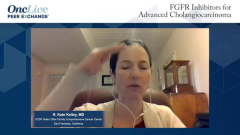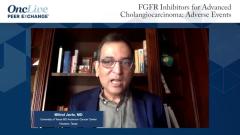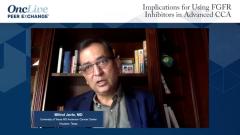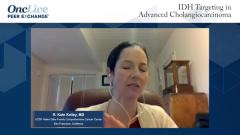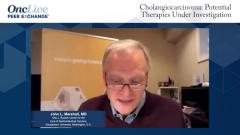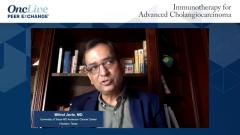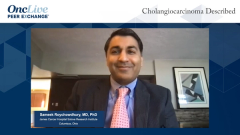
Liver Transplantation for Advanced Cholangiocarcinoma
Scenarios for which liver transplantation may be appropriate in advanced cholangiocarcinoma.
Episodes in this series

John L. Marshall, MD: Milind, we do a lot of transplants at Georgetown University. I suspect you are in the same place. Is transplant appropriate? Is it research? Is it standard of care? Can you walk us through that?
Milind Javle, MD: There’s pretty good evidence for validity of transplant in perihilar cholangiocarcinoma. The Mayo Clinic group has published a series, and there’s been a national study as well. Perihilar cholangiocarcinoma with a mass less than 3 cm that is not resectable, and no extrahepatic disease, should be considered for transplantation, particularly if they have PSC [primary sclerosing cholangitis] underlying in the liver. These patients have an extended survival, an almost 75% 5-year survival. With intrahepatic cholangiocarcinoma, the traditional thinking is that these are blood-borne metastases, so this is not a situation for transplantation. I think this paradigm is changing because there is a group of patients who have liver-limited disease, and we have an investigational protocol looking at that situation.
John L. Marshall, MD: It’s scary because we’re using a valuable resource. We’re not 100% sure that it’s going to help; at the same time, we want to try everything we can—that we’re going to immunosuppress these people afterward, depending on the source of the liver. We are walking down that road. It’s important for people to know, and that’s where I come back to this baseline testing. It’s important to have good, solid baseline testing because at some point, you’re going to want to know if there is any evidence of extrahepatic disease. A lot of these cancers like to stay home. Over time, they’ll spread, but a lot of them seem to be liver-only, even with regional spread. Would you all agree with that?
Milind Javle, MD: There’s a fraction of those, sure. In the ABC trial, when they looked at close to 1000 patients, they identified I think less than 100 who had liver-limited disease that was lymph node negative. Their survival was about 2 years…there was multifocal disease in the liver, but it was still limited to the liver. Those are the kind of candidates we need to identify better for liver-directed approaches.
Transcript Edited for Clarity


